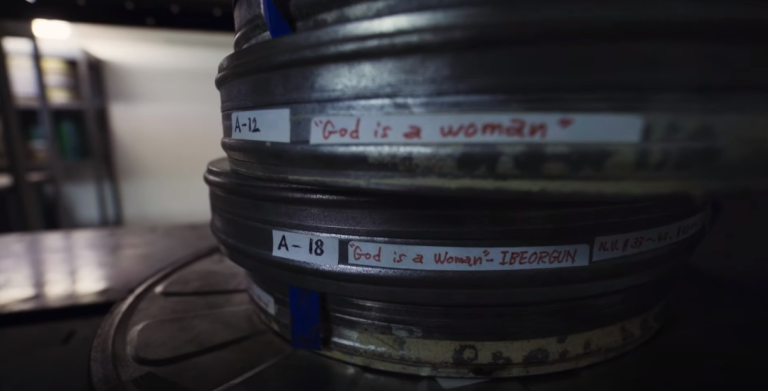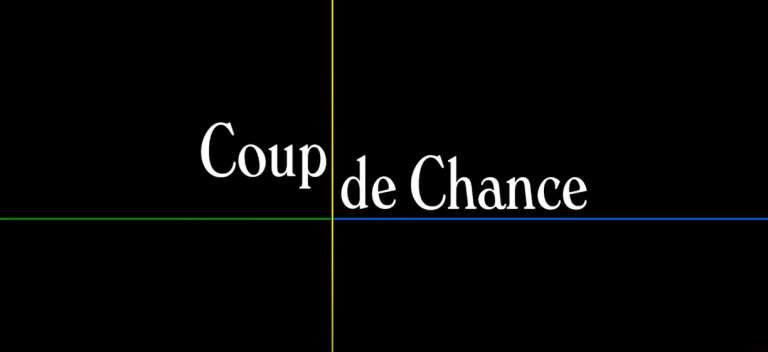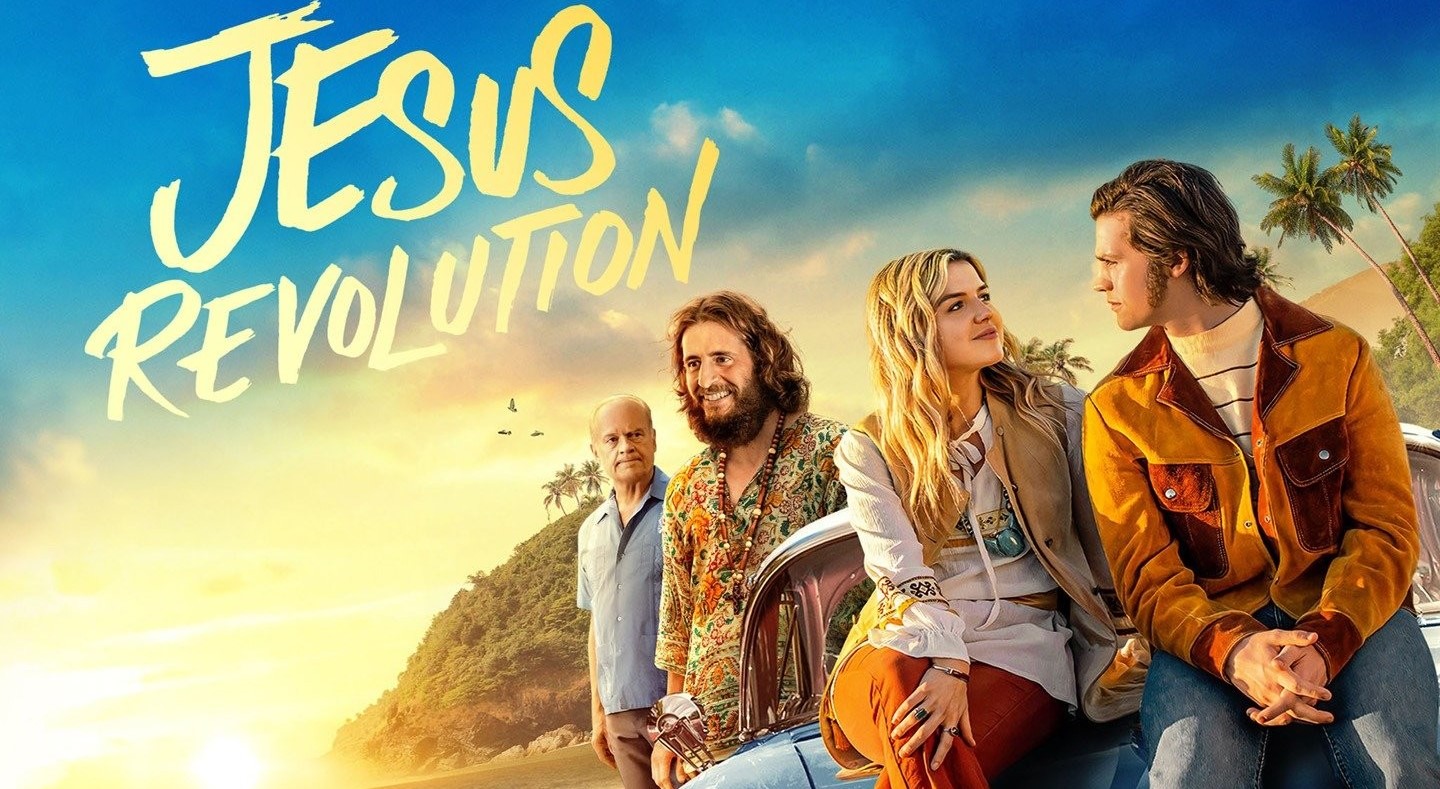

“Jesus Revolution” unfolds against the vibrant backdrop of 1970s southern California, immersing viewers in the heady mix of countercultural fervor and spiritual awakening that defined the era. Despite its slick production values, the film treads familiar ground in terms of storytelling, embracing classic coming-of-age tropes amidst the hippie movement’s bohemian ambiance.
The film meticulously captures the essence of the time period, from the characters’ love beads to the soundtrack pulsating with iconic tunes of the era. Every detail, from vintage cars to barefoot wanderers, contributes to a sense of nostalgia, painting a vivid picture of a bygone era that still resonates today.
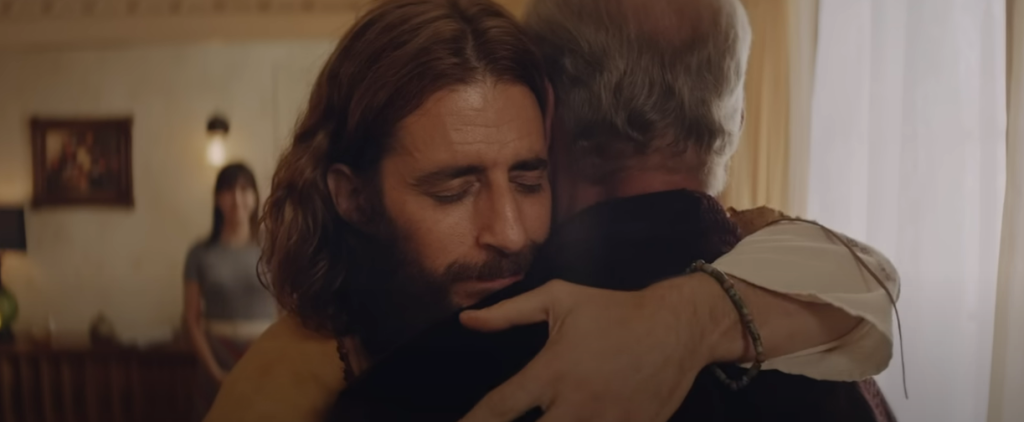
At its heart, “Jesus Revolution” follows a young protagonist’s journey of self-discovery amidst a cultural revolution. Through encounters with charismatic mentors and heartfelt connections, he grapples with questions of identity and purpose, ultimately undergoing a transformative journey that shapes his worldview.
While the film offers a Christian perspective on the intersection of evangelicalism and the hippie movement, it simplifies complex dynamics and omits significant controversies. Notably, the portrayal of Lonnie Frisbee glosses over his sexuality and subsequent excommunication, presenting a sanitized version of events.
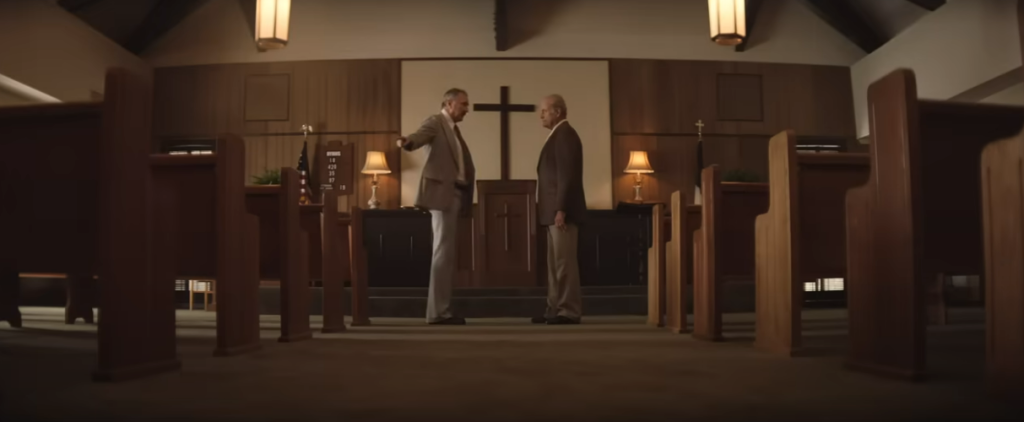
Similarly, the film idealizes Pastor Chuck Smith’s embrace of Frisbee’s preaching style, overlooking the broader socio-political context. This selective portrayal limits the film’s depth, leaving audiences craving a more nuanced exploration of the era’s complexities.
Despite its technical proficiency, “Jesus Revolution” falls short in offering a comprehensive depiction of the era, veering towards propaganda at times. While it caters to a specific viewpoint, its biased approach may alienate viewers seeking a more inclusive and critically examined account of the era.
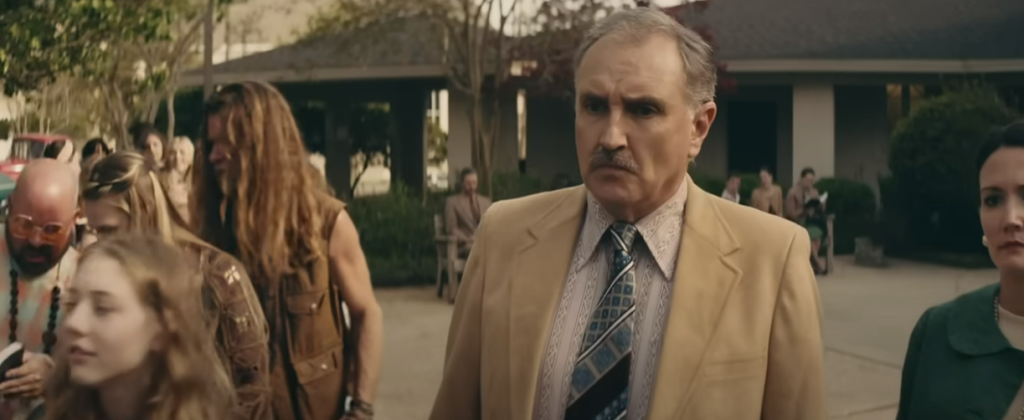
In conclusion, “Jesus Revolution” offers a captivating but ultimately limited portrayal of a pivotal moment in history. Its cinematic merits are overshadowed by its tendency towards selectivity, leaving audiences yearning for a more balanced perspective on this transformative period.
| Aspect | Description |
|---|---|
| Setting | Set against the sun-soaked backdrop of southern California in the early 1970s, capturing the essence of the hippie movement with meticulous attention to detail. |
| Themes | Explores universal themes of self-discovery, love, and mentorship within the context of a cultural revolution, offering a poignant reflection on growth and the search for meaning. |
| Cinematic Elements | Showcases technical proficiency and polished production values, with a soundtrack featuring iconic bands from the era. |
| Perspective | Presents a distinctly Christian viewpoint on the intersection of evangelicalism and the hippie movement, focusing on key figures such as Lonnie Frisbee and Pastor Chuck Smith. |
| Omissions and Simplifications | Skirts around controversial aspects of Frisbee’s life, such as his outing as gay, presenting a sanitized portrayal that overlooks complexities and conflicts within the era. |
| Propaganda and Bias | Tends towards a propagandistic portrayal, omitting significant details and presenting a selective narrative that caters to a specific viewpoint, potentially alienating some viewers. |
| Desire for a More Comprehensive Approach | Leaves some viewers longing for a more nuanced and unbiased exploration of the era, with a deeper examination of the complexities and contradictions inherent in the collision of faith and counterculture. |


